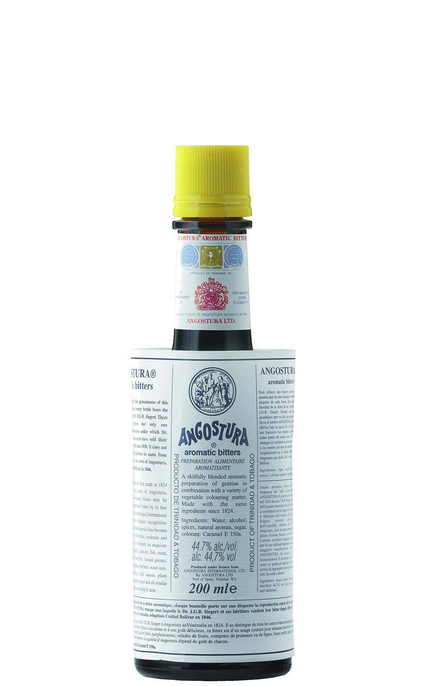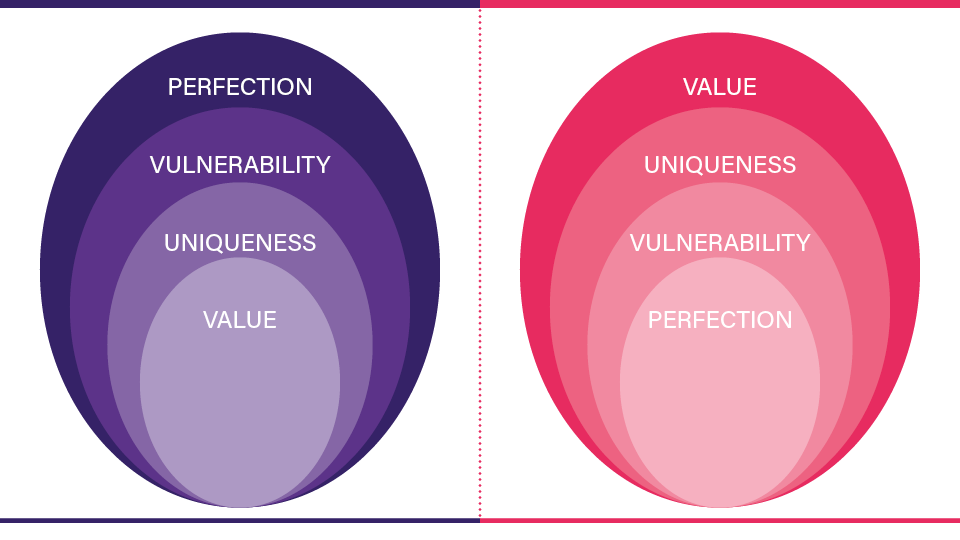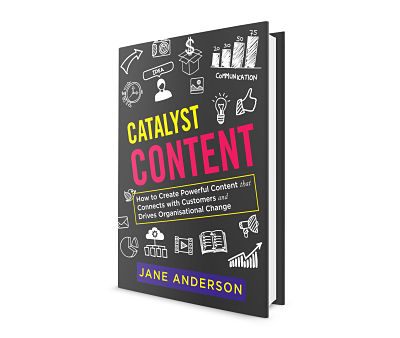If you’ve ever seen an Angostura Bitters bottle with its oversized white label, you’ll know it’s pretty distinctive. But many people don’t know the story behind the bottle’s appearance. And it’s a story worth telling, one that highlights the importance of embracing your uniqueness.

When Dr Johann Siegert died in 1870, his two sons took over the already established bitters business. They wanted to expand the business and gain more widespread attention, so they decided to enter a bitters competition in order to showcase their product’s quality to the world.
In preparation for the competition, one brother was in charge of designing a new bottle and the other of designing a new label. Unfortunately, they didn’t consult each other about sizing and when the new labels and bottles arrived, the label was too big.
It was too late for them to make any changes, so they entered the competition with their bottle covered in the oversized label. They lost the competition, but one of the judges encouraged them to keep their ‘signature labelling’.
They did, and since then all Angostura bottles are made and shipped with this recognisable and iconic piece of packaging.
Fear Makes Us Vanilla
The things that make us unique and different can sometimes feel like ‘faults’ as well. Often we’re afraid of showing our own ‘oversized labels’, and embracing our own uniqueness. We fear being vulnerable, of showing our soft underbelly, of letting the world see who we really are. And we’re afraid of oversharing and losing credibility because we aren’t perfect.
So, we try to hide the things that make us stand out from the crowd in an effort to be seen as ‘just like everyone else’. Or we try to shoehorn ourselves into some kind of one-size-fits-all brand with air brushed images and bland messages.
The problem with trying to fit in is that that’s just what we end up doing. Our brand becomes vanilla, our voice watered down and our messaging vague and uninspiring. No one hears us or sees us because we’re lost in a sea of people doing, saying and being the same things. In our search for perfectionism, we lose ourselves.
Perfectionism is Bad for Us – Personally and Professionally

Seeking out perfectionism doesn’t just make you vanilla and bland, it’s also bad for you. It holds you back from being your most productive self. It keeps you from sharing your most important and valuable messages. And it stops you from resonating with the right people.
It’s also incredibly bad for you personally. Perfectionism is linked with depression, anxiety, self-harm, social anxiety disorder, agoraphobia, obsessive-compulsive disorder, binge eating, anorexia, bulimia, post-traumatic stress disorder, chronic fatigue syndrome, insomnia, chronic headaches, early mortality and even suicide.
Perfectionism doesn’t always look at how you think. Lynne Cazaly, in her book ‘ish’, talks about three types of perfectionism:
1. Self-oriented perfectionism: holding yourself to impossibly high standards.
2. Socially-prescribed perfectionism: perceiving that others have unreasonable expectations for you.
3. Other-oriented perfectionism: where you place excessively high standards on others.
Research by Thomas Curran and Andrew Hill shows that over the past almost 20 years each type of perfectionism has been on the rise with the second type increasing the most – by a whopping 33%. Researchers say that the cultures they studied – American, Canadian and British – are all becoming more and ‘more individualised, materialistic and socially antagonistic’.
Brené Brown says, ‘Perfectionism is a self-destructive and addictive belief system that fuels this primary thought: If I look perfect, and do everything perfectly, I can avoid or minimise the painful feelings of shame, judgment, and blame’.
Overcoming Perfectionism
The Siegert brothers were faced with a problem, an error, even a fault. But rather than succumbing to what could be a disaster, they embraced their ‘problem’ and turned it into an asset. What made them unique, made them interesting and made them memorable.
Your uniqueness is what makes you interesting (I wrote about this back in 2018 as well). Embrace your uniqueness – it’s what helps you stand out from the crowd and find your voice. Importantly, being yourself, embracing yourself is not just good for your brand and your business, but for your own personal health and wellbeing.
To be a healthy and successful human, you have to learn from your mistakes, and that means you have to be comfortable making them in the first place. Personal growth is essential for wellbeing, and professional growth is essential for business success. So, we need to put ourselves out there, warts and all, make mistakes and grow and learn from them.
Next Steps
1. Get out of your own way. Let perfectionism go. It’s not serving you (or anyone else).
2. Embrace your authenticity. You are the only one of you in the world. Embrace that.
3. Share your unique story. No one can tell your story but you. And if you don’t, no one else will.
You will make mistakes, you will do things that are quirky and unusual, and you may not always follow the crowd. But those aren’t bad things, and they can be great things. Your uniqueness makes you special. Embracing it and sharing it can build your brand, engage your audience and engender loyalty. Just like Angostura Bitters mistake did for them.
I’d love to hear your thoughts…



